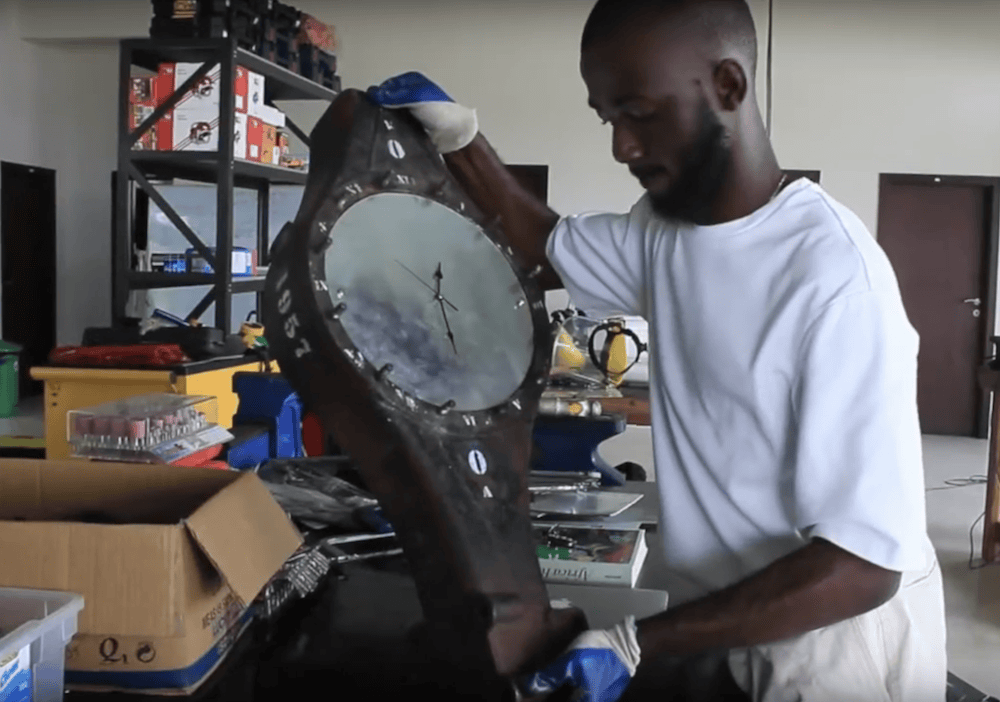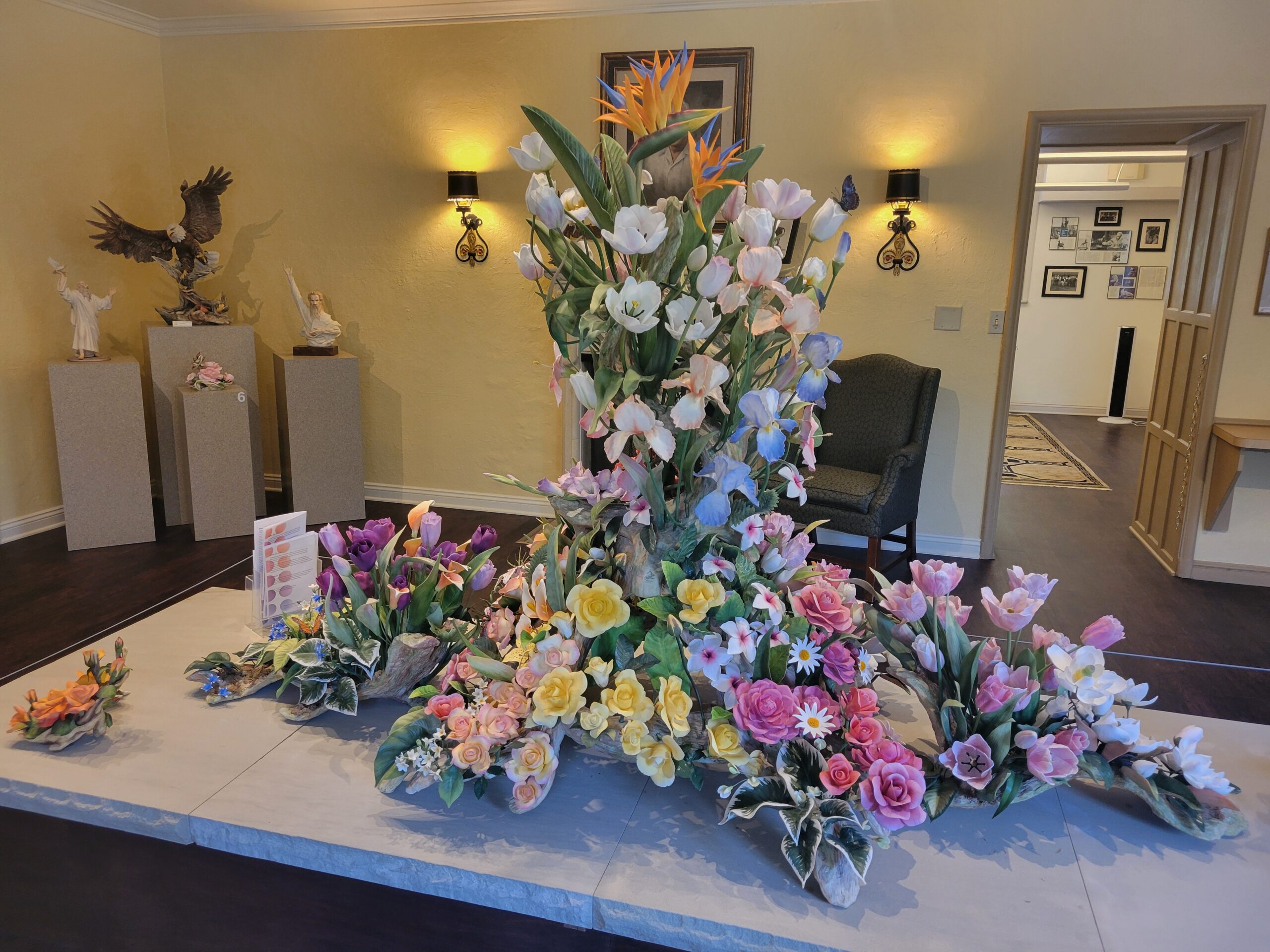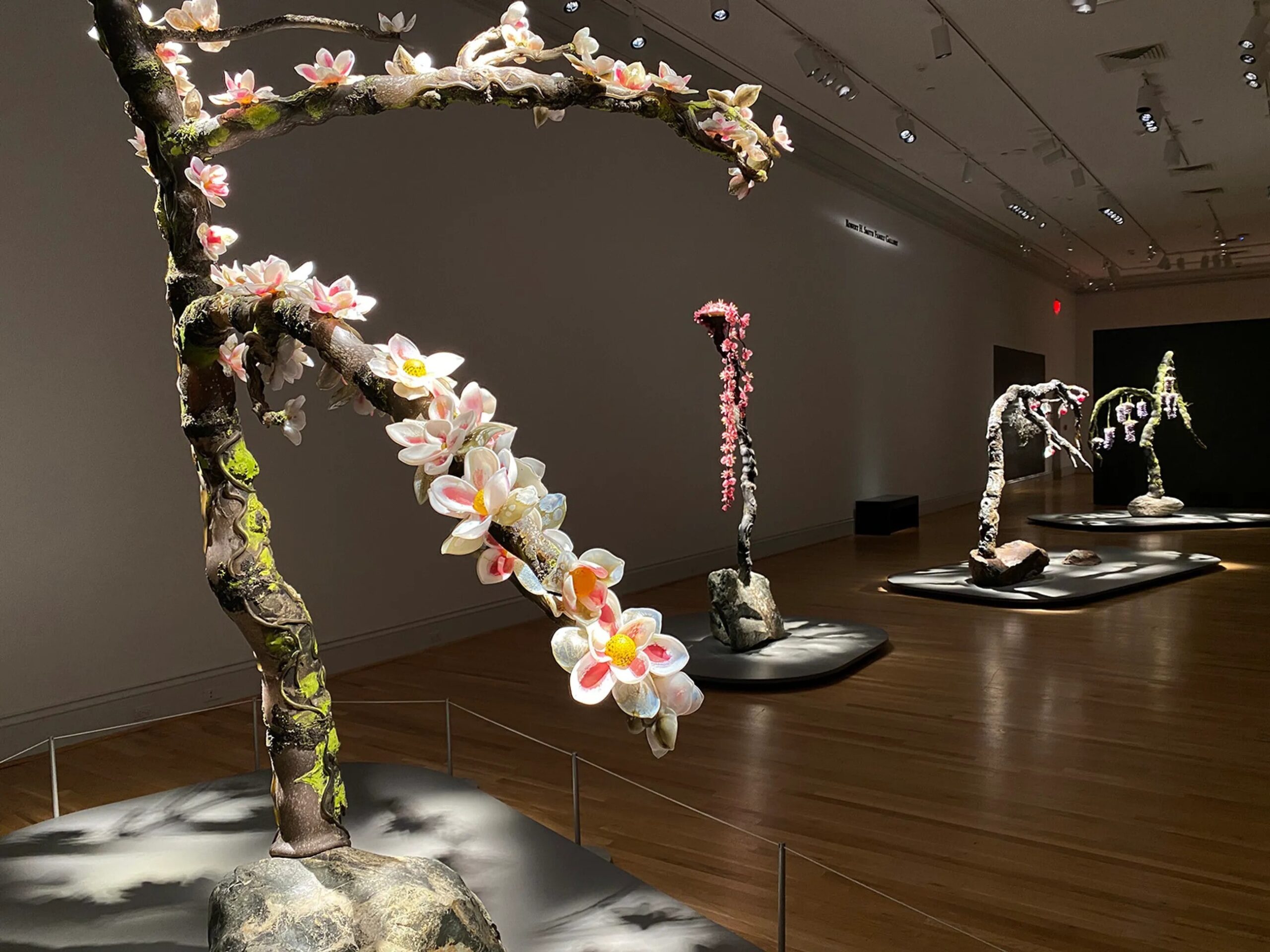
[Image above] Joseph Awuah-Darko displays a clock he made out of waste recovered from Agbogbloshie, a commercial district on the outskirts of Accra, Ghana. Credit: Arab News, YouTube
When China made the decision to stop accepting plastic waste from other countries in 2018, the question on many people’s minds was where trash would go instead. However, this focus on China as the dumping ground for waste obscures the fact that developed countries export their trash to many other countries as well, even before China stopped importing waste.
Indonesia, Malaysia, and Thailand are some of the countries that received the largest influx of waste following China’s ban. But while the export of waste to these countries grabbed headlines, the governments of Indonesia, Malaysia, and Thailand countered by implementing new rules to curb the import of trash.
In contrast, export to countries that import lower quantities of waste, such as Ghana, Ethiopia, Laos, Cambodia, and Ecuador, may be more worrisome. These countries do not have the restrictions on imports or the waste management infrastructure seen in other countries, so they face additional difficulties handling the waste.
It is certainly daunting to consider the amount of work it will take to establish a system capable of handling all of this waste. Yet that hasn’t stopped some entrepreneurs from starting their own initiatives to aid local communities.
Last October, I highlighted the work by one woman in Kenya to turn plastic waste into bricks. Today, we look at the efforts of two men in Ghana to combat e-waste and glass waste, respectively.
Joseph Awuah-Darko: Upcycling e-waste in Agbogbloshie
Agbogbloshie is a commercial district on the outskirts of Accra, the capital of Ghana. The site is known for containing large amounts of e-waste that is managed largely by an informal network of migrant workers.
“The migrant workers who arrive at Agbogbloshie with some money in their pocket often start working in the repair and dismantling section. … That which cannot be repaired is dismantled: the parts that can be used for future repairs are kept, everything else is sold by the weight to other workers and then set on fire in allocated burning areas so that valuable metals like copper and aluminium can be extracted for resale,” an Equal Times article explains.
The burning of materials is a concerning process because of the toxic smoke it releases, which negatively impacts air quality and human health. Ending this practice is a goal of Joseph Awuah-Darko’s Agbogblo.Shine Initiative.
Awuah-Darko is a 24-year-old Ghanaian contemporary artist, art collector, and dealer. When he first saw the piles of circuit boards, wires, and plastics at Agbogbloshie, he decided to use his artistic talent to develop a program to sustainably manage the waste.
In 2017, while enrolled at Ashesi University in Accra, he founded the Agbogblo.Shine Initiative along with fellow student Cynthia Muhonja to encourage people working at Agbogbloshie to turn waste into high-end furniture instead of burning it.
“I chose to see the opportunity to create and turn what has been called a dump into an opportunity,” Awuah-Darko explains in an interview with Arab News.
In May 2018, he was awarded the “Most Promising Social Enterprise” by the West African Business Excellence Awards for the Agbogblo.Shine Initiative. In 2019, Forbes recognized him as one of its “Africa 30 under 30” class.

Credit: Arab News, YouTube
Michael Tetteh: Finding beauty in recycled glass
Recycling glass can be difficult based on the purity required for certain applications. However, for glassblower Michael Tetteh, he overcomes this barrier by recycling glass to make works of art.
Originally born into a family of traditional bead makers in Ghana, Tetteh received a scholarship to study glassblowing in the Netherlands. When he returned home, “there’s nothing like to blow glass, we have nothing here in Ghana,” he says in an interview with Africa By Design.
He founded the Tetteh Glassblowing Company in Krobo Odumase, Ghana. Because of difficulties securing equipment, Tetteh created his own furnaces, which he and his team use for melting glass.
Instead of raw materials, Tetteh uses discarded glass products such as bottles and television screens for his art. “Our work is basically a recycling work. We have some women in Accra who go around and look for glass waste so we turn them into amazing products. It serves as a form of employment for these women who go about to look for glass wastes which we use in our work. They collect the glasses and wash them and we go for them,” he explains in a GhanaWeb article.
Learn more about Tetteh’s work—and see the creation process in detail—in the videos below.

Video cannot be embedded. Click on the picture to redirect to the original site hosting this video. Credit: Eco Africa

Credit: Africa By Design, YouTube
Author
Lisa McDonald
CTT Categories
- Art & Archaeology
- Environment


